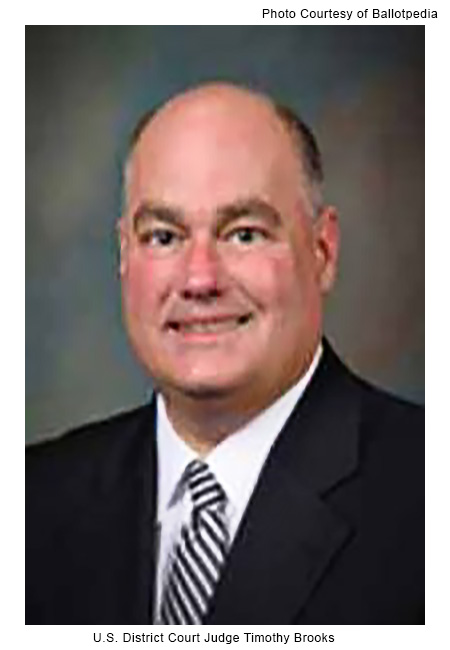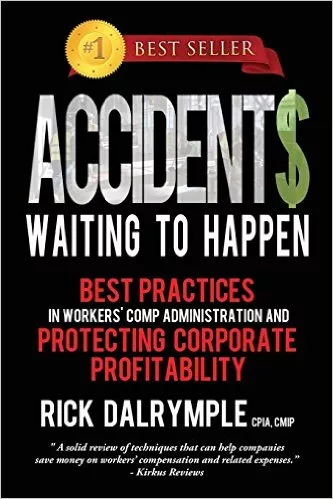Litigation
Court Denies 'ESOP' Lawsuit Dismissal Against Central States Manufacturing
U.S. District Court Judge rules from bench; defendants had until July 8 to respond

The United States District Court for the Western District of Arkansas in Fayetteville, Ark., is the site of ongoing litigation between three employees of Central States Manufacturing, the company, its board of directors and its bank trustee, GreatBanc Trust.
— Image courtesy of the Library of Congress
A years-long lawsuit brought by three Central States Manufacturing, Inc. employees — the metal building component, roofing, and building materials manufacturer based in Tontitown, Ark. — claiming breach of fiduciary responsibility regarding its employee stock ownership plan, or ESOP, has lived to see another day.
A ruling on a motion to dismiss the case was denied at a June 17 hearing in the U.S. District Court's Western District of Arkansas after the judge overseeing the case ruled against the company’s motions, which included “Lack of Standing,” “Failure to Exhaust Administrative Remedies before Bringing Suit," and “Failure to State Claims for Breach of Fiduciary Duties Under ERISA.”
The lawsuit was first filed in November 2023 by three employees, Justin Shipp, Vincent Tate, and Terrence Yazel, on behalf of themselves and other ESOP participants.
The lawsuit alleges that the company, its board of directors, and GreatBanc Trust Company, acting as Central States' trustee, breached their fiduciary duties under the Employee Retirement Income Security Act, or ERISA, due to the ESOP's involvement in a “re-leveraging” transaction, as stated in the complaint.
When a company undergoes an ESOP refinancing, it takes out a new loan to extend the repayment schedule and the period for stock allocation to participants, resulting in fewer shares being released and allocated to participant accounts than during the original loan period.
The plaintiffs claim in the lawsuit that the refinancing transaction devalued the accounts of the existing participants, causing them harm, as first reported by The National Law Review in December 2023.
The Background
 Central States was founded in 1988 and has grown substantially since then. It now operates 11 manufacturing and retail stores across the eastern half of the United States. It is a closely held, employee-owned company with no publicly traded stock; all stock is wholly owned by an ESOP established in 1991 to provide retirement benefits to Central States employees.
Central States was founded in 1988 and has grown substantially since then. It now operates 11 manufacturing and retail stores across the eastern half of the United States. It is a closely held, employee-owned company with no publicly traded stock; all stock is wholly owned by an ESOP established in 1991 to provide retirement benefits to Central States employees.
At the end of each calendar year, on Dec. 31, Central States contributes stock shares and/or cash to every employee's ESOP retirement account. The amount contributed is based on the employee's seniority and salary, with those with greater seniority and higher salaries receiving proportionally larger contributions than recently hired, less highly-paid employees.
The ESOP currently has more than 700 participants or beneficiaries and is considered a pension plan subject to ERISA regulations.
When a Central States employee retires or leaves the company, they no longer receive new stock or cash deposits into their ESOP account. GreatBanc Trust Co., a financial institution based in Lisle, Ill., is the ESOP’s trustee and determines the fair market value of the employee’s retirement account shares.
The company then pays the employee for their shares in installments over a five-year period. Once those shares are repurchased or “redeemed,” they are taken out of circulation and “retired.” In practice, the available share pool shrinks as people retire from the company.
The three plaintiffs mentioned retired or left Central States. Shipp and Yazel departed the company in 2018 but were still receiving payouts for their ESOP retirement shares when the events described in the complaint occurred. Tate left the company more recently, in 2022, and received payouts.
Plaintiffs accuse the defendants of breaching their fiduciary duties to the ESOP and its plan participants. They claim the defendants entered into a specific financial transaction at the end of 2020 that allegedly reduced the value of all ESOP shares. The plaintiffs are suing on behalf of themselves and a group of ESOP participants and beneficiaries.
The ‘Rift’
In 2020, the employee retirement plan of Central States was considered a "mature" ESOP, which meant that the initial debt incurred by the company to purchase shares for the ESOP had been paid off. However, a certain number of shares remained available for distribution to plan participants.
Central States said in its brief that the company became concerned about its dwindling stock reserves and the disproportionate concentration of company stock vesting in the retirement accounts of a few highly compensated, long-term employees.
The company was worried that new employees might not receive stock shares to fund their retirement accounts due to an insufficient number of shares for distribution. Additionally, around 2015, the per-share value of the company's stock started to surpass the total equity value, leading to a potential financial crisis.
Central States worried that if long-term employees holding a high concentration of shares retired, paying out their shares could create a cash flow problem or potentially bankrupt the company.
The plaintiffs argue that Central States was not facing a significant financial threat from retiring employees. Instead, they claim the company was anxious about paying its retirees the full market value of their ESOP shares, as required by ERISA.
The plaintiffs allege that the company, in collaboration with the board of directors and ESOP Trustee, GreatBanc, conspired to evade this legal obligation to protect Central States' financial interests at the expense of its long-serving employees.

Photo courtesy of Central States Manufacturing
The complaint centers on two financial transactions that negatively impacted the value of the ESOP’s shares. The first transaction began in August 2020. In its issuance, the court wrote that this transaction did not harm the value of the ESOP’s shares but set the stage for a second transaction in December 2020, which the plaintiffs believe caused significant damage.
Central States took out a bank loan for $40 million and used it to purchase more than 2.2 million shares from certain ESOP participants who were retired, retiring, or separating from the company. GreatBanc set the fair market value of each share at $18, resulting in a total value of $40 million.
Instead of retiring the shares after redemption, which is standard practice, Central States put them back into circulation to fund future contributions to employee retirement accounts. The plaintiffs agree that the "redemption" transaction did not violate ERISA.
Part two of the transaction happened in December 2020. The company conveyed the 2.2 million redeemed shares to the ESOP in exchange for the ESOP issuing the company a promissory note for $40 million — the same amount the company spent purchasing the shares — to be repaid over 30 years.
Once the ESOP received these shares, court records show they were retained in a “suspense account” to be allocated to participants little by little, over the course of the next 30 years. The plan was that, as the $40 million loan was repaid, the equivalent value of company shares would be released from the suspense account and made available for the ESOP retirement accounts.
In a December 2023 court filing, the company labeled the transaction a “re-leveraging” of its stock. The plaintiffs agree that a deleveraging event is not, per se, illegal; however, they claim that the structure of this particular re-leveraging event violated ERISA.
Plaintiffs argue that though the redemption event properly valued the stock shares at $18 5 per share, those same shares were worth a lot less money after the company had taken on $40 million of new debt.
The ESOP paid for the redeemed shares with a promissory note that assumed the value of the shares had not changed, which, the court said, suggests that the ESOP overpaid Central States for these shares to the ESOP participants’ detriment.
Furthermore, the plaintiffs argue that the value of their existing shares in the ESOP was diluted by about 19% when the ESOP acquired these new 2.2 million shares and moved them into the “suspense” account.
The plaintiffs suggest that the Central States defendants and GreatBanc could have used other reasonable options to address the alleged financial threat faced by the company's retirees instead of the December 2020 re-leveraging.
According to an amended complaint, these alternatives could have included the ESOP purchasing shares from the inactive participants and then immediately reallocating them to participants, thereby reducing or eliminating any dilutive impact on the value of each share.
The defendants were given until July 8 to file answers to the amended complaint.
The complete filing can be read HERE.
Looking for a reprint of this article?
From high-res PDFs to custom plaques, order your copy today!









